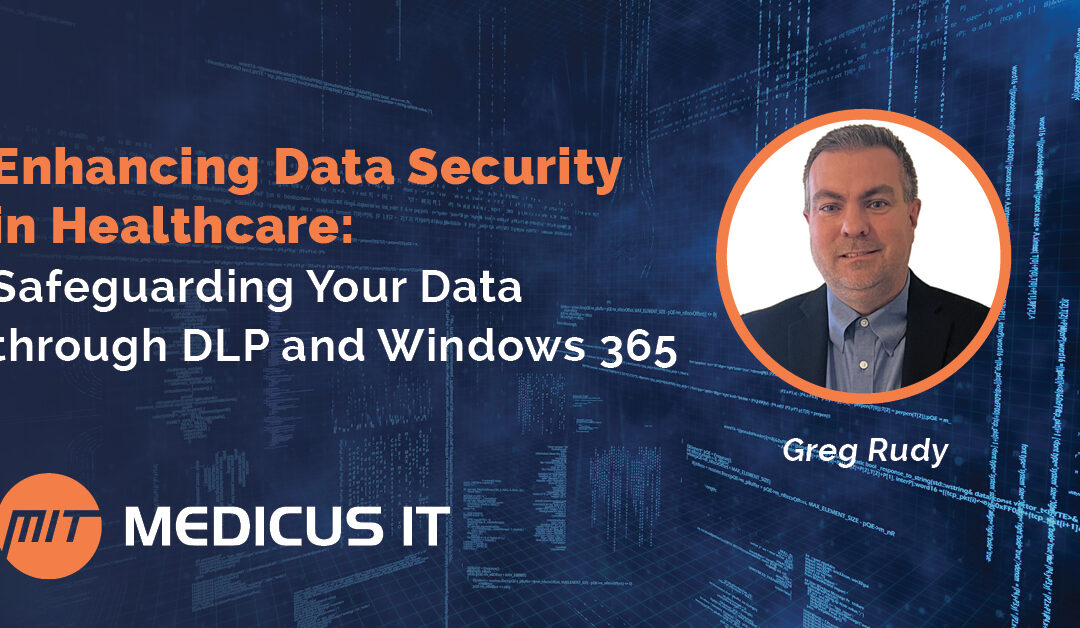Enhancing Data Security in Healthcare: Safeguarding Your Data through DLP and Windows 365
Enhancing Data Security in Healthcare: Safeguarding Your Data through DLP and Windows 365
In today’s increasingly digital world, healthcare organizations face numerous challenges when it comes to safeguarding sensitive patient data. With the rise of cyber threats, ensuring robust data security measures has become paramount. Microsoft Azure, combined with Data Loss Prevention (DLP) and Windows 365, offers a powerful solution to protect healthcare data, enabling organizations to strengthen their security posture and maintain compliance.
Data Loss Prevention (DLP) in Azure:
Data Loss Prevention is an integral part of Microsoft Azure’s comprehensive security offerings. DLP empowers healthcare organizations by enabling them to identify, monitor, and protect sensitive data throughout its lifecycle. By using Azure Information Protection, organizations can classify data and apply appropriate protection policies, ensuring that only authorized individuals can access, view, and share sensitive information.
Key Benefits of DLP in Healthcare:
- Compliance and Regulation: Healthcare organizations must adhere to various regulatory frameworks, such as HIPAA, GDPR, and CCPA. DLP in Azure provides tools and capabilities that help maintain compliance with these regulations. It assists in preventing data breaches, avoiding penalties, and protecting patients’ privacy.
- Data Discovery and Classification: DLP enables organizations to identify sensitive data within their environment, including patient records, financial information, and personally identifiable information (PII). By automatically classifying data based on predefined policies, organizations can gain visibility into their data landscape and apply appropriate security controls.
- Preventing Data Loss: DLP helps mitigate the risk of accidental or intentional data leakage. It offers advanced monitoring and prevention capabilities to detect and block unauthorized data transfers, whether through email, cloud storage, or other communication channels. By setting up policy-based rules, healthcare organizations can proactively prevent data breaches and maintain confidentiality.
Windows 365: The Secure and Productive Cloud PC:
Windows 365, Microsoft’s cloud-based PC solution, further enhances data security for healthcare organizations. It provides a secure, virtualized environment where healthcare professionals can access their applications and data from anywhere, on any device, while ensuring data stays protected within Azure.
Key Benefits of Windows 365 in HealthCare:
- Enhanced Security: Windows 365 leverages Azure’s robust security infrastructure, offering features such as multi-factor authentication, encrypted connections, and advanced threat protection. It reduces the risk of data compromise in scenarios where healthcare professionals access patient data remotely.
- Simplified Management: Windows 365 streamlines IT management tasks, enabling healthcare organizations to centrally manage user access, data policies, and software updates. This centralized approach ensures consistent security measures and reduces the burden on IT teams.
- Scalability and Flexibility: Windows 365 enables healthcare organizations to scale their resources based on demand. With its pay-as-you-go model, organizations can easily adjust their capacity to accommodate fluctuating needs, enhancing both cost efficiency and productivity.
As mature healthcare organizations navigate the evolving landscape of digital threats, it is crucial to adopt comprehensive data security measures. Microsoft Azure, coupled with Data Loss Prevention (DLP) and Windows 365, offers healthcare organizations a powerful combination to safeguard their data. By implementing DLP, organizations can classify and protect sensitive data, ensuring compliance with regulatory frameworks. Windows 365 provides a secure and flexible virtual desktop solution that empowers healthcare professionals to work remotely without compromising data security. Embracing these technologies can help healthcare organizations maintain patient trust, mitigate risks, and elevate their overall security posture in an ever-evolving digital world.
About the author:
Greg Rudy is a seasoned IT Professional with over 25 years of industry experience providing next level technology consultation and support services to a variety of market verticals. For the past 10 years, he has focused on services to Federally Qualified Healthcare Centers and Community Health Centers across the United States. He currently serves as a Sr Solution Architect for Medicus It out of Atlanta Georgia. He is passionate about solving complex problems and helping organizations to mature their IT posture. He has become an expert in Microsoft Cloud Solutions and building robust delivery platforms on the backbone of Azure cloud hosting and infrastructure as a service. He is a husband, father, grandfather and in his spare time, a musician. He enjoys spending time exploring the beautiful North Georgia Mountains that he calls home.
If you would like more information about this or other Healthcare IT related topics, he can be reached via email at grudy@medicusIT.com
Connect or follow him on LinkedIn

